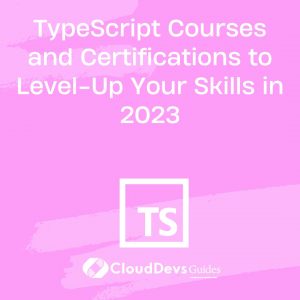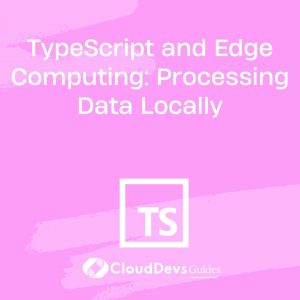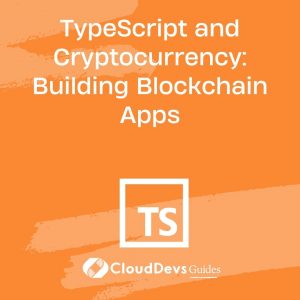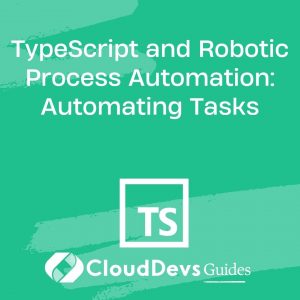TypeScript Courses and Certifications to Level-Up Your Skills in 2023
TypeScript has emerged as a prominent framework for diverse applications and has garnered widespread acclaim across businesses of all sizes. TypeScript empowers developers to efficiently build robust applications, and the demand for TypeScript developers is on the rise.
Table of Contents
If you are eager to enhance your TypeScript programming skills or embark on a career in TypeScript development, investigating certification programs or enrolling in relevant courses can provide substantial advantages. In this article, we will explore some of the top TypeScript certification options and courses available in 2023.
1. Understanding TypeScript by Udemy
Understanding TypeScript is a course offered by Udemy that teaches you how to use TypeScript and its features like types, ES6 support, classes, modules, interfaces, and much more in any of your projects. The course is designed to help you understand what TypeScript is about and how it works. It also explains why TypeScript offers a real advantage over vanilla JavaScript. You will learn TypeScript both in theory as well as applied to real use cases and projects. The course is taught by Maximilian Schwarzmüller and has a rating of 4.6 out of 5 based on 45,000+ ratings.
The Understanding TypeScript course offered by Udemy is divided into 16 sections and the course modules are;
- Getting Started: This section provides an introduction to the course and TypeScript.
- TypeScript Basics and Basic Types: This section covers the basics of TypeScript, including types, type casing, working with numbers, strings, booleans, objects, arrays, tuples, enums, the “any” type, union types, literal types, and type aliases.
- The TypeScript Compiler (and its Configuration): This section explains how to use the TypeScript compiler, including compiling the entire project, including and excluding files, setting a compilation target, working with source maps, and more.
- Next-generation JavaScript and TypeScript: This section covers next-generation JavaScript features such as “let” and “const”, arrow functions, default function parameters, the spread operator, rest parameters, array and object destructuring, and how code gets compiled.
- Classes and Interfaces: This section covers classes, constructors, properties, inheritance, abstract classes, interfaces, and more.
- Advanced Types: This section explores advanced TypeScript types, including intersection types, function overloads, discriminated unions, type guards, nullable types, index properties, and more.
- Generics: This section covers generics in TypeScript, including generic functions, generic classes, constraints, and more.
- Decorators: This section explains decorators in TypeScript, including class decorators, method decorators, property decorators, and parameter decorators.
- Modules and Namespaces: This section covers modules and namespaces in TypeScript, including exporting and importing modules, default exports, and more.
- Webpack and TypeScript: This section explains how to use Webpack with TypeScript, including configuring Webpack, using loaders, and more.
- Using Third-Party Libraries and Types: This section covers using third-party libraries with TypeScript, including installing type definitions, using ambient declarations, and more.
- React + TypeScript: This section explores using TypeScript with React, including creating React components, using props and state, and more.
- Node.js + TypeScript: This section covers using TypeScript with Node.js, including setting up a Node.js project, using Express, and more.
- Testing and Debugging TypeScript: This section explains how to test and debug TypeScript code, including using testing frameworks, debugging in Visual Studio Code, and more.
- Publishing Your TypeScript Project: This section covers publishing TypeScript projects, including bundling, minification, and more.
- Course Roundup: This section concludes the course and provides additional resources for further learning.
By the end of this course, you will be able to receive a certificate of completion.
2. TypeScript: The Complete Developer’s Guide by Udemy
Typescript: The Complete Developer’s Guide is a course offered by Udemy that aims to help you master TypeScript by learning popular design patterns and building complex projects. The course includes lessons on React and Express, making it a comprehensive resource for developers who want to enhance their TypeScript skills. The course was created by Stephen Grider and has a rating of 4.6 out of 5 based on over 10,000+ ratings.
The course is divided into 20 sections with a total length of 27 hours and 19 minutes. It covers a wide range of topics, including TypeScript basics, type annotations, classes, interfaces, generics, and decorators.
- Getting Started with Typescript: In this section, you will learn and gain an understanding of typescript through a fundamental overview. This includes eleven lectures adding up to 42 minutes.
- What is a Type System?: in this module, you will learn what a Type System is, and in what kind of scenarios we use types.
- Type Annotations in Action: In this section, you will cover a range of topics regarding type annotations in actions. This includes type annotation and inference, annotations with variables, object literal annotations, ‘Any’ Type, and delayed initialization.
- Mastering Typed Arrays: This section teaches you about the Arrays in TypeScript, what Typed Arrays are, and multiple types in Arrays.
- Tuples in Typescript: In this section, you will learn about the types in typescript, tuples in actions, and what you should use tuples in typescript programming. These three lectures add up to 13 minutes.
- The All-Important Interface: In this section, you will learn about interfaces, long-type annotations, filing long annotations with interfaces, syntax around annotations, functions in interfaces, code reuse with interfaces, and general plan with interfaces.
- Building Functionality with Classes: In this section, you will learn about classes, basic inheritance, instance method modifiers, fields in classes, fields with inheritance, and where you can use classes.
- Design Patterns with Typescript: This module is quite long, and it includes 26 lectures adding up to 2 hours and 15 mins of lecture materials. Some of the things you will learn in this include updated parcel instructions, app overview, bundling with parcel, project structure, generating random data, type definition files, etc.
- More on Design Patterns: This module’s topic is also long, and includes 24 lectures adding up to 2 hours and 35 minutes of lecture recordings. This section teaches about configuring the TS Compiler, concurrent compilation, and execution, simple sorting algorithm, sorter scaffolding, sorting implementation, two huge issues, type guars, extracting key logic, etc.
- Reusable Code: This module topic covers 37 lectures each adding up to 3 hours and 8 mins of recorded video lectures. This section teaches you about CSV Data, type definition files, how to read CSV files, running analysis, using Enums, type assertions, creating abstract classes, variable types with generics, and alternate refactors.
- Integrating Typescript with React: In this section, you will learn about generating typescript-enabled projects, ReactDOM warning with React v18, file extensions and starting up React, changes with TypeScript, explicit component type annotations, etc.
- Using Typescript with Express: In this section, you will learn the basics of Metadata, practical Metadata, Refactor, controller decorator, defining a RouteBinder, Metadata Keys, etc.
- Advanced Generics: This module topic includes only four lectures, and it teaches about Generics, type inference with Generics, function Generics, and Generic Constraints.
- Let’s Build a Web Framework: This module is the longest section in this course, and it covers 76 lectures, each adding up to 6 hours and 52 minutes of recorded lecture materials. You will learn about framework structure, retrieving user properties, eventing system, listener support, storing event listeners, dynamic array creation, triggering event callbacks, adding JSON Server, adding fetch functionality, saving user data, and refactoring with composition.
- More on Decorators: In this topic, you will learn about decorators in typescript, property decorators, wrapping methods with descriptors, decorator factories, and decorators around properties.
- Migrating to Typescript: In this section, you will learn about Redux store design, reducer setup, annotating the Return Type, typing an Action, separate interfaces for Actions, adding an Action type for Enum, Request Logic, etc.
By the end of this course, you will be able to gain an exceptional understanding of what TyoeScript is, and also receive a certificate of completion.
3. TypeScript Bootcamp: Zero to Mastery by Zero To Mastery
The TypeScript Bootcamp: Zero to Mastery course is designed to help you learn TypeScript from scratch by building real-world applications. The course creator is Jayson Lennon, who is an industry professional, and this course covers everything from beginner to advanced topics. If you are a JavaScript developer who wants to enhance your coding skills, then this is the perfect course for you.
The course modules are;
- Introduction: In this section, you will learn about TypeScript, and why you should get started on learning TypeScript. The introduction module also covers a session on meeting your instructor and your classmates.
- TypeScript Fundamentals: In this module, you will learn about installing typescript, types primer, variables, basic types, applying boolean logic, boolean expressions, arithmetic operations, increment and arithmetic assignment, functions, template strings, and type annotations.
- Review: This section covers the Todo list: Initial code, Todo list: add and list todos, Todo List: CLI.
- Intermediate TypeScriptScript: Beyond the basics: In this section, you will learn about classes, interfaces, interface methods, interface properties, Interators: ‘for..of’, map data type, working with maps, exceptions, type assertions, union types, creating a union, type predicates, optional fields, optional chaining, unit testing, Async/Await, etc.
- Project: Weather App: In this topic, you will learn about HTTP Request/ Response Cycle, type definitions, project setup, CLI, fetching location data, weather types, fetching weather data, integrating location and weather fetching, web UI project setup, updating location functions, updating weather API Functions, server setup, server routing, and testing.
- TypeScript Techniques and Patterns: In this section, you will learn about discriminated Unions, Const assertions, generics, generic functions, generic classes, and iterator internals, followed by several exercises.
- Project: User Authentication Form: In this section, you will learn about project setup, database module setup, database connection, repository implementation, session queries, etc.
- Where to Go From Here? : This is the final module, and it covers a review of the course followed by the things to do after obtaining the course certificate.
You can share the projects you complete throughout this course on your social media profiles including Linkedin.
4. TypeScript Fundamentals by PluralSight
The TypeScript Fundamentals course by Pluralsight is designed to help you get started with TypeScript and use it to build large and small-scale applications. This course covers the key concepts and features needed to understand TypeScript, such as variables, types, functions, interfaces, classes, and generics. It also teaches you how to catch coding issues early and increase your productivity and efficiency. The course is taught by Dan Wahlin and John Papa, who are industry professionals with extensive experience in web and mobile technologies.
The course modules are;
- Getting Started with TypeScript: this topic is a basic introduction to what typescript is, tooling and framework options, typescript syntax, keywords, and code hierarchy.
- Typing variables and functions: in this section, you will learn grammar in typescript, declarations, annotations, type inference, static and dynamic typing, complete time, run time, and applying types.
- Classes and Interfaces: In this topic, you will learn about defining classes, limitations, casting and type definitions, extending types, and using interfaces.
- Modules: This is the final course module, and it covers identifying a module, creating an internal module, naming modules, extending modules, importing shortcuts, etc.
Here is a comparison table of the TypeScript courses mentioned above.
| Course/ program | Cost | Level | Duration | Study mode |
|---|---|---|---|---|
| Understanding TypeScript | $74.99 | Intermediate | 15 hours | Online |
| Typescript: The Complete Developer’s Guide | $74.99 | Advanced | 27 hours | Online |
| TyepScript Bootcamp: Zero to Mastery | $39 | Intermediate | 12 hours | Online |
| TypeScript Fundamentals | $7 | Beginner | 4 hours and 24 minutes | Online |
The table above illustrates variations in TypeScript courses concerning their duration, costs, and skill prerequisites. it it evident that some courses can be costly, while others are free and designed for individuals with intermediate or advanced skills. When selecting a TypeScript course, it it crucial to consider your skill level, financial constraints, and career aspirations. This approach will assist you in identifying the most suitable TypeScript course for your needs.
Conclusion
In conclusion, enrolling in a TypeScript course in 2023 presents an excellent opportunity to boost your career prospects. With the right training, you can enhance your expertise as a TypeScript developer and take part in exciting projects. Whether you are a novice or a seasoned programmer, there are numerous courses and certification programs available to help you improve your skills.
Table of Contents








